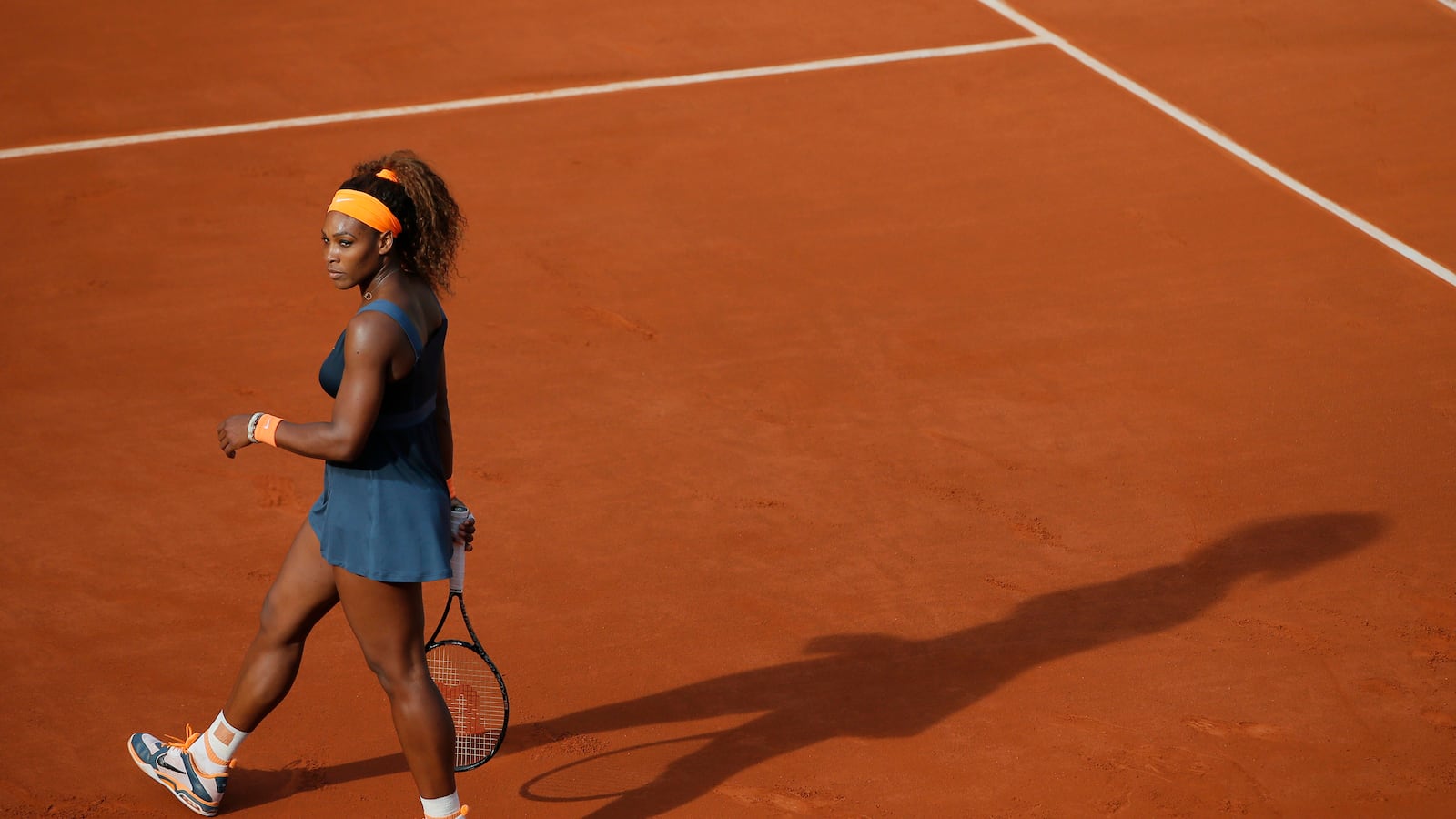Years ago, during the first of my many interviews with Venus and Serena Williams, I was immediately struck by the obvious personality differences between the two sisters.

Venus was the quiet one: pensive and observant of everything around her. Serena, on the other hand, was the quintessential youngest child: free-spirited, kind, uninhibited, and prone to do or say just about anything to anyone at any time.
As different as they were, the Williams sisters possessed an unbreakable and imposing bond of unity wherever they appeared. At Wimbledon a few years back, I was struck again by the fierceness of their presence, both on and off the court. In the locker room shortly after they won the doubles title, I watched in awe as everyone in their path quickly moved to give them ample space to walk through the room. And understandably so—the sisters’ facial expressions clearly telegraphed their shared thoughts: Move out my way, and do not mess with me.
That day, I interviewed two girls who had clearly been taught by their parents—and by life’s many unexpected circumstances—to stand their ground at all costs and to never allow anyone the opportunity to cause you pain.
That simple philosophy, which clearly affected every aspect of their lives, may help to understand the recent ill-advised comments supposedly made by Serena in reference to the Steubenville rape case. In the latest issue of Rolling Stone, Williams is reported as saying in part (she suggests she was misquoted): “I’m not blaming the girl, but if you’re 16 years old and you’re drunk like that, your parents should teach you don’t take drinks from other people.”
Those comments, understandably, set pundits and sports fans on fire. The Steubenville rape victim had been brutally abused, raped, and then publicly humiliated when images of that assault were shared on Facebook and other websites. Was Serena really so cold and unsympathetic?
By the next morning, Williams hastily issued a rebuttal on her website apologizing for the hurtful statements and for the pain she may have caused the teenage rape victim. She said she had also reached out to the young girl and her family to personally apologize. “What was written—what I supposedly said—is insensitive and hurtful, and I by no means would say or insinuate that she was at all to blame," Williams wrote.
Of course, there is no question in my mind that if these are the words Williams used, she was at the very least thoughtless—and at the very worst unfeeling and insensitive. But as much as I wholeheartedly disagree with every word attributed to Williams, there is another very real reality that is rarely discussed and surely lurks somewhere in Williams’s comments.
As African-Americans, and even more so as African-American women, we are routinely forced to deal with the harsh reality that when bad things happen to black people, no one cares. Equally important: when bad things happen to black people, no one is brought to justice as a result. Need proof? Just Google the names Trayvon Martin and George Zimmerman. It took six weeks and massive protests around the country for the man who killed an unarmed black teenager to even get arrested. When was the last time the case of a missing or murdered black woman was heavily featured on the news and spoken about at length in the media? Black women do go missing, and we do get murdered every day. We also get raped. And so what is deeply instilled in many of us by our parents is the rule that you must have your wits about you at all times or face the real risk ending up dead.
You’re taught that you must take responsibility for your own wellbeing with the clear understanding that absolutely no one else is going to do it for you. This has always been the unspoken rule of the inner city and hardcore streets—places like Compton, California, where Venus and Serena were born. There, they saw as very young children how easy it was to lose your life at a moment’s notice by simply wearing the wrong color, using the wrong hand sign, or by just being at the wrong place at the wrong time.
In Compton, lives like that of their older sister Yetunde are lost in gunfire countless times a day. So the Williams sisters learned to defend themselves in every situation and to never display any signs of weakness. Those commandments have served them well in the mostly all-white world of tennis—a world that their father Richard made sure they were prepared for by instructing them to stare their opponents down on the court; to never smile while in the heat of battle; and to always wear their steely game faces in front of others, whether on or off the court.
Venus and Serena’s father understood that as the only black girls on the tennis tour, any chink in their armor would mean the loss of confidence, the loss of self-esteem, and the loss of power.
Taken in context, it’s not extremely difficult to understand how these real, hard-knock, life-learned lessons may have influenced Serena’s statements to Rolling Stone. In her world, then and now, lack of awareness and lack of understanding of the fact that truly horrible things can happen to anyone in the blink of eye are surefire invitations for unbearable pain.
In Serena’s reality, youthful indiscretion and the loss of control are just not options, even when you’re just a 16-year-old girl.






